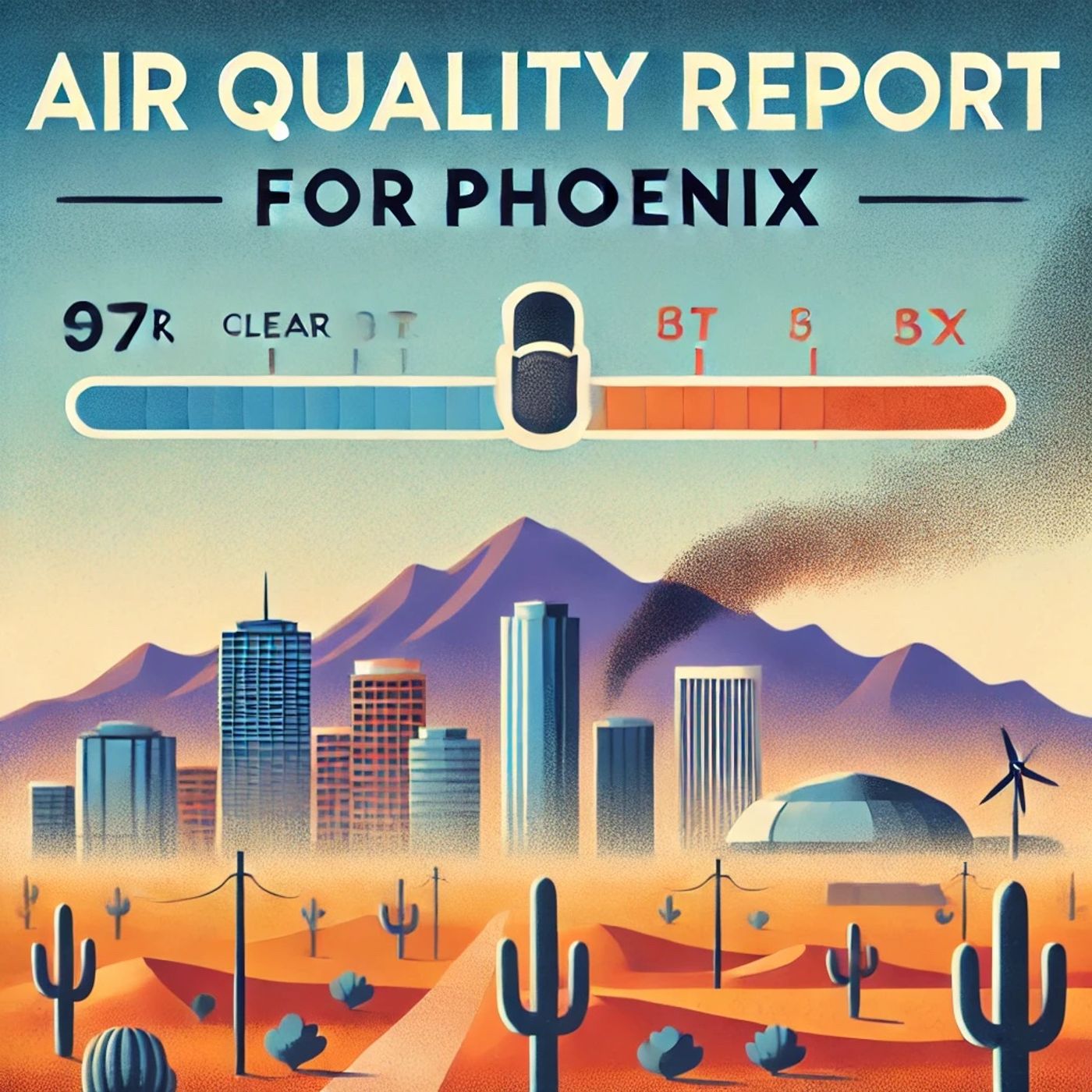Listen "Phoenix air quality a growing concern"
Episode Synopsis
Today in Phoenix, the air quality is a topic of significant concern, affecting the city's residents and its vibrant ecosystem. Phoenix, located in the Valley of the Sun, is known for its desert climate, with hot summers and mild winters. However, air quality can fluctuate considerably due to various factors such as weather conditions, pollutants, and human activities.Currently, the Air Quality Index, commonly known as AQI, indicates a moderate level for Phoenix. The AQI is a standardized system used to measure and report air quality daily. It focuses on the health effects one might experience within a few hours or days after breathing polluted air. The index ranges from zero to 500, with higher values indicating worse air quality and greater health concerns.Today’s moderate AQI means that air quality in Phoenix is acceptable for most individuals. However, sensitive groups such as children, the elderly, and those with respiratory issues should limit prolonged outdoor exertion. The primary pollutants contributing to the current conditions include ground-level ozone and particulate matter.Ground-level ozone, commonly referred to as smog, is not emitted directly into the air but forms when pollutants from vehicles, industrial facilities, and other sources react chemically in the presence of sunlight. High temperatures typical of Phoenix can accelerate this reaction, leading to higher ozone levels.Particulate matter, another significant pollutant in Phoenix’s air, consists of tiny particles suspended in the air. These particles can be a mixture of solids and liquids, including dust, dirt, soot, and smoke. Sources of particulate matter often include construction sites, unpaved roads, fields, smokestacks, and fires. Inhaling particulates can cause various health problems, such as aggravated asthma, decreased lung function, and other respiratory issues.Weather conditions play a crucial role in air quality. Phoenix’s geographical setting in a valley surrounded by mountains can trap pollution, especially during temperature inversions where cooler air is trapped near the ground by a layer of warmer air. These inversions can cause pollutants to accumulate, leading to poor air quality until weather conditions change and allow for dispersion of pollutants.Local authorities and organizations continually monitor air quality and provide forecasts to help residents plan their activities. They also implement measures to reduce emissions, such as promoting public transportation, encouraging carpooling, and regulating industrial emissions.Residents can contribute to improving air quality by taking several actions. Reducing vehicle use, maintaining vehicles properly to minimize emissions, using environmentally friendly products, conserving energy, and supporting policies and initiatives aimed at reducing air pollution are all effective steps.In conclusion, while today’s air quality in Phoenix is at a moderate level, awareness and proactive measures by both residents and local authorities are essential to maintain and improve air quality. Understanding the factors that contribute to air pollution and taking action to mitigate these effects can help ensure a healthier environment for all.This content was created in partnership and with the help of Artificial Intelligence AI
More episodes of the podcast Phoenix Air Quality Report - Daily
Phoenix Enjoys Excellent Air Quality Today
23/08/2025
 ZARZA We are Zarza, the prestigious firm behind major projects in information technology.
ZARZA We are Zarza, the prestigious firm behind major projects in information technology.
